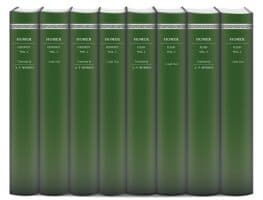In 1919—only a year after World War I—a young atheist named Clive Hamilton published a collection of poems about the material world, the problem of evil, and a longing for who-knows-what. Today, you know Clive Hamilton as C. S. Lewis, and Spirits in...
by Richard Rohlfing | Durham University Most of us are aware that 35-40% of the Hebrew Bible can be described as poetic (not to speak of the poetic dimensions of Hebrew narrative). Yet, what theological difference does it make that poetry is the...
C.S. Lewis once said, “The most valuable thing the Psalms do for me is to express the same delight in God which made David dance.” Poetry has the unique power to evoke the vast and varied expanse of human emotion. And the Psalms have it all—from...
“What has Athens to do with Jerusalem?” When church father Tertullian asked this question, it was rhetorical; the answer, to him, was ‘Nothing.’” But that’s not exactly true. To understand the Hellenized Jewish culture Jesus was born into...



